
-
Find the right food for your petTake this quiz to see which food may be the best for your furry friend.Find the right food for your petTake this quiz to see which food may be the best for your furry friend.Featured products
 Perfect Digestion Small & Mini Adult Dog Food
Perfect Digestion Small & Mini Adult Dog FoodHill's Science Plan Perfect Digestion Small & Mini Adult Dog Food with Turkey is a complete premium pet food for small breed adult dogs aged 1–6 years. This deliciously smooth mousse is precisely balanced to deliver the appropriate amount of energy and to support digestive health in adult, small breed dogs.
Shop Now Perfect Weight Small & Mini Adult Dog Food
Perfect Weight Small & Mini Adult Dog FoodHill's Science Plan Adult Small & Mini Dog Food with Turkey is a complete premium pet food for adult small dogs from 1 year old that are prone to weight gain or slightly overweight. This deliciously smooth mousse is formulated to deliver the appropriate amount of energy to support weight maintenance in adult dogs.
Shop Now Hypoallergenic Small & Mini Adult Dog Food
Hypoallergenic Small & Mini Adult Dog FoodHILL'S SCIENCE PLAN Hypoallergenic Small&Mini Adult dog food with Salmon is complete pet food for adult small dogs 1–6 years old. It's formulated for dogs with delicate skin and stomach, with limited high quality novel protein sources & no grain.
Shop NowFeatured products Oral Care Adult Cat Food
Oral Care Adult Cat FoodHill's Science Plan Oral Care Adult Cat Food with Chicken contains clinically proven kibble technology to reduce plaque & tartar build up.
Shop Now Urinary Health Adult Cat Food with Chicken
Urinary Health Adult Cat Food with ChickenHill's Science Plan Urinary Health Adult Cat Food with Chicken supports the health of the whole urinary system. Suitable for sterilised cats.
Shop Now Sterilised Mature Adult Cat Food
Sterilised Mature Adult Cat FoodHill's Science Plan Sterilised Cat Mature Adult Cat Food with Chicken is specially formulated with ActivBiome+ Multi-Benefit Technology. It is a precisely balanced nutrition tailored to meet the needs of mature adult sterilised cats, ages 7+, and to promote graceful ageing.
Shop Now -
Dog
- Dog Tips & Articles
-
Health Category
- Weight
- Food & Environmental Sensitivities
- Urinary
- Digestive
- Joint
- Kidney
-
Life Stage
- Puppy Nutrition
- Adult Nutrition
- Senior Nutrition
Cat- Cat Tips & Articles
-
Health Category
- Weight
- Skin & Food Sensitivities
- Urinary
- Digestive
- Kidney
-
Life Stage
- Kitten Nutrition
- Adult Nutrition
Featured articles Virtual Vet Visits: What You Need to Know
Virtual Vet Visits: What You Need to KnowLearn the ins and outs of a televet appointment before you talk to a vet online.
Read More Develop your gut instinct | Hill's Pet
Develop your gut instinct | Hill's PetDigestive disorders can affect any part of the digestive system, from the stomach, small intestine and through to the large intestine.
Read More Tips For Mixing Wet And Dry Pet Food
Tips For Mixing Wet And Dry Pet FoodDiscover tips for mixing wet and dry pet food to ensure balanced nutrition and variety for your pet. For comprehensive feeding advice, visit Hill's Pet UK.
Read More -


A lot happens during a kitten's first year. It's hard to believe that a tiny, meowing kitten that fits in the palm of your hand will grow into a fully-fledged adult cat in just twelve months. A typical kitten growth chart shows that most of the changes – and the most amazing ones – happen during the first eight weeks. Check out this kitten timeline to learn when to expect certain milestones on your kitten's journey to becoming a cat.
1–3 key milestones in the kitten age chart
Eyes and ears
Kittens come into the world with their eyes and ears closed and spend the first week or so of their lives blind and deaf. Their eyes and ears start to open during the second week, says Cats Protection, but their vision and hearing aren’t very good yet. It’s a good idea to keep them away from bright lights and loud noises at this point. The blue eyes that kittens are born with may start to change colour from their third week, which is also when their ears start to perk up and point upwards, introducing them to a whole new world filled with sound.
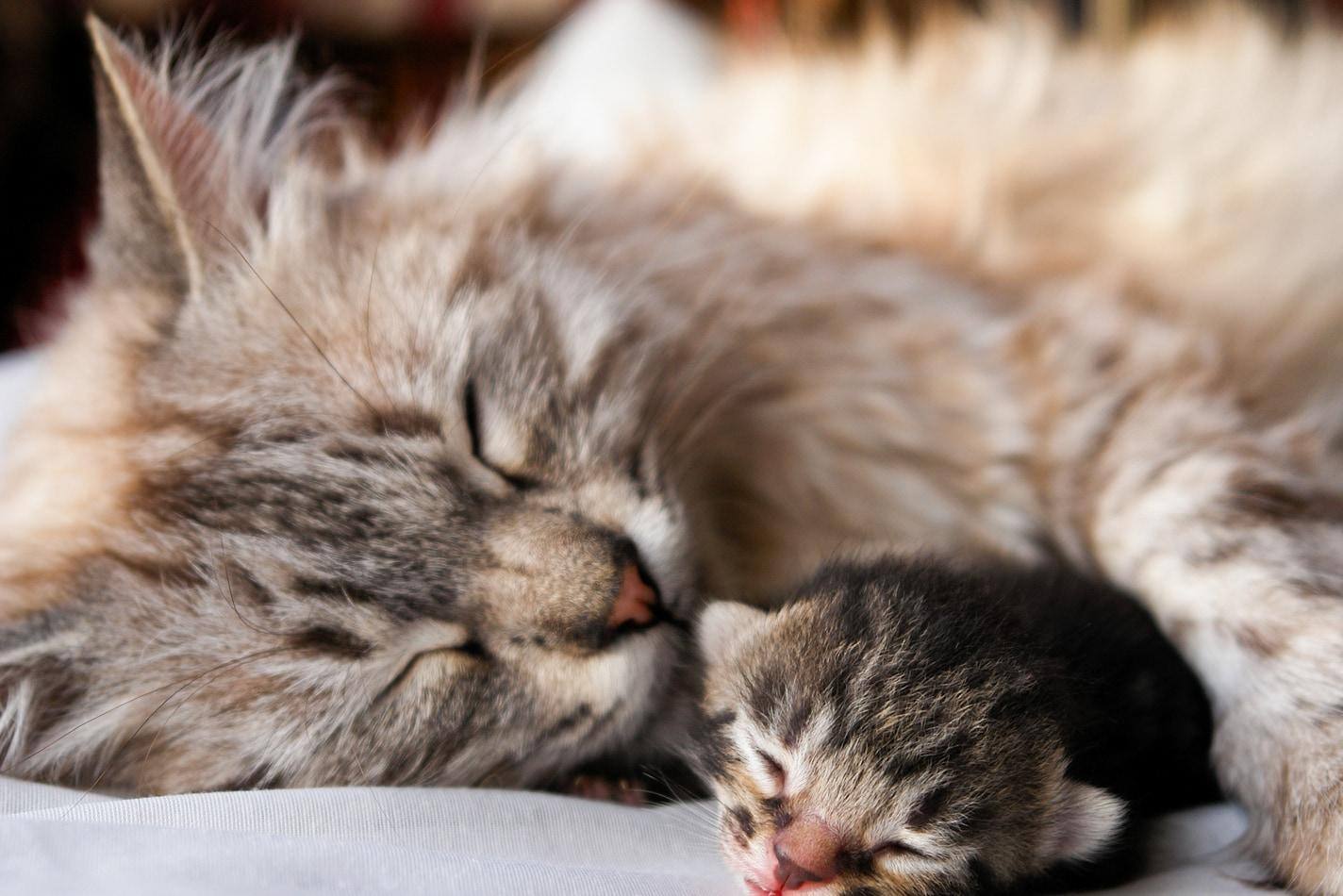
Starting to make sounds
Kittens will start to make little “meowing” noises a few days after birth to let their mother know they're hungry or distressed, says Cats Protection, with purring typically beginning a few weeks later. Kittens tend to become more vocal as they start walking, playing and exploring their surroundings.
Kitten nutrition
Kittens, the same as all mammals, are completely nourished by their mother’s milk after birth. Each species has evolved to have milk that delivers just the right balance of nutrients. Some are higher in fat, some in protein, depending on the species’ needs.
The first milk that is produced is really important as it contains ‘colostrum’. This contains antibodies and other nutrients that will help support the kittens’ immune system in the first few weeks after birth. It’s important that the mother is fully protected by vaccination to ensure she passes the maximum immunity to her young.
The kittens will knead the mum’s mammary glands to stimulate the flow of milk. This ‘making bread’ action carries on into adulthood and gives cats a feeling of comfort, a bit like children sucking their thumbs.
3–7 weeks in the kitten age chart: walking, weaning and using the litter tray
Around three weeks of age is usually when kittens start to take their first shaky steps. They start out wobbly and unsure, but, as balance begins to improve during the fourth week, they become more confident and eager to explore their surroundings. By the fifth or sixth week, when kittens are confident enough in their newfound mobility, your kitten’s energetic, playful and curious nature will start to emerge! During the fourth and fifth week of the kitten timeline, their balance should be improving. This is usually when the breeder will start to introduce them to the litter tray. Kittens typically learn what to do from watching mum, although they're still learning and accidents will happen.
Kittens can be introduced to solid food from their third week, but weaning is a gradual process that can take a few weeks to complete. Cats Protection recommends feeding the nursing mother and her kittens the same complete kitten food during the early stage of weaning to help with the transition. While they may be eating the same food, the kittens should be offered a moist form or soaked dry foods when beginning the weaning process.
During lactation, the kittens’ mum should be fed ad lib food to make sure she has enough energy for her and her growing young. Kittens will naturally start to explore mum’s food, and as their calorie needs and their hunger grow, they will naturally start eating more kitten food.
By six to eight weeks, your kittens will have finished the transition to solid food and should be exclusively fed high-quality kitten food. For guidance on how much to feed, follow the manufacturer’s guidelines printed on the pack and weigh the kitten’s food with accurate kitchen scales to ensure they get the right amount of energy and nutrients. Most kittens will want to be fed “little and often”, according to Cats Protection, so you may want to divide their daily food intake into smaller portions throughout the day. However, each kitten is unique, so monitor your kitten’s development and body condition, adjust their feeding patterns accordingly and speak to your vet if you have any concerns.


Tasty Tips
8–12 weeks: socialisation and vaccinations in kitten growth
Did you know kittens will have two sets of teeth as they age, just like humans? Feline baby teeth start coming in during the second week after birth, and your kitten should have all of their baby teeth by about eight weeks of age. By four months, their adult teeth will start to appear, and they should have all of their adult teeth by six months.
They will need their first vaccinations at around 8-9 weeks, followed by boosters at around 12-16 weeks. Most kittens will still be with the breeder at the age of their first vaccination, but do make sure you find out when you get your kitten if they have had any vaccinations. If they have, you should be given a certificate signed by a vet to prove this.
The RSPCA says that kittens are commonly vaccinated against feline herpes virus, feline calicivirus, feline infectious enteritis, and feline leukaemia virus. Your veterinarian can advise you on other conditions your kitten may need to be vaccinated against.
Socialisation and habituation are very important. Socialisation is how kittens learn to live with humans and other animals. Habituation is learning how to cope with the myriad things in their environment, such as vacuum cleaners and other machines and objects. The early weeks are very important. Ask your breeder what has been done to start this process and make sure you know what to do to continue the process when you get home.
Grooming, cuddling and playing with the kittens will not only support their development, but it will also get them used to being picked up and handled. The RSPCA says it’s also the right time to start introducing kittens to other people and children, as well as other healthy, fully vaccinated cats and dogs. This will help them grow into emotionally healthy, well-adjusted adult cats.
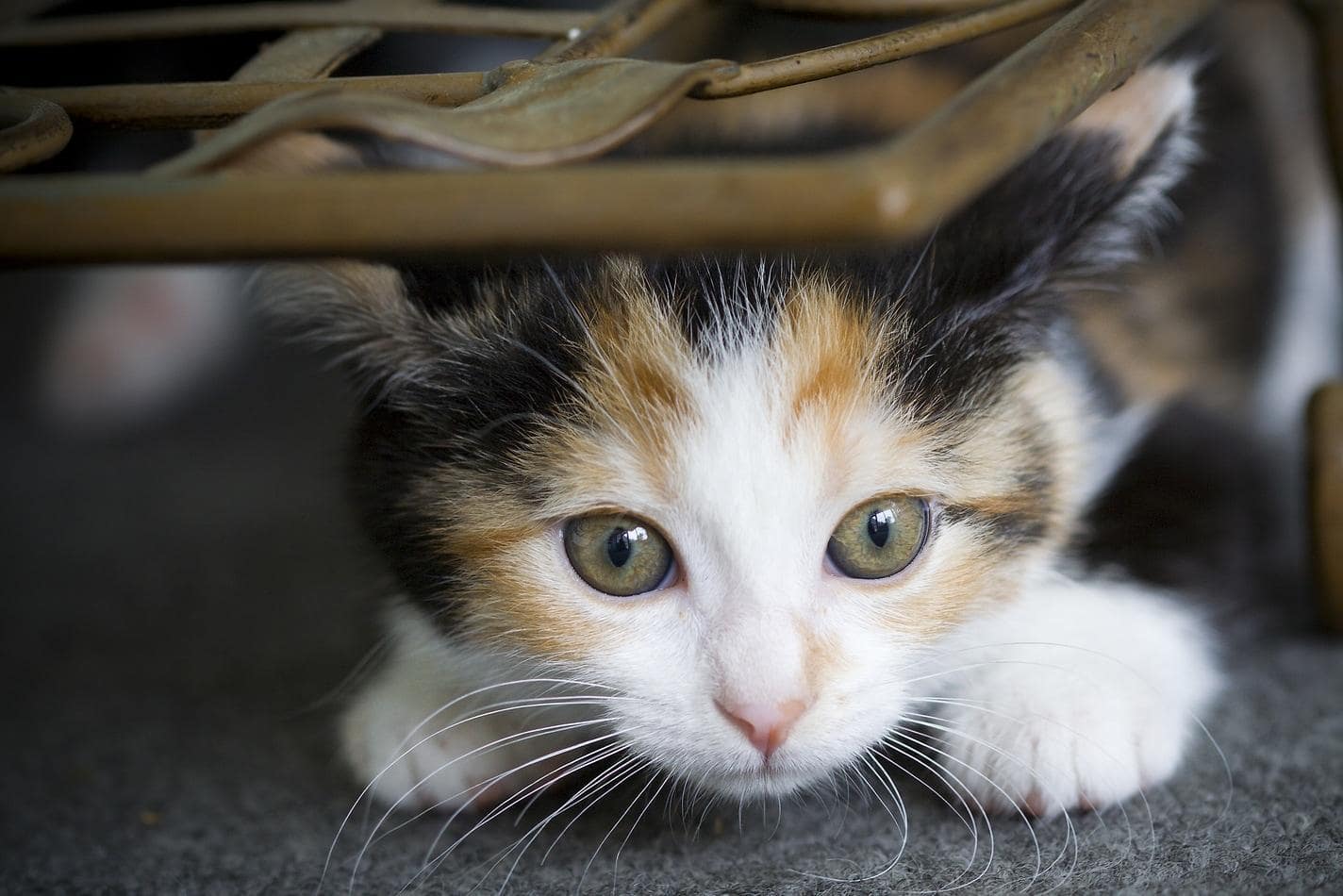
3–6 months in the kitten age chart: ready for adoption and neutering
Kittens shouldn't be separated from their mother and littermates until they have been fully weaned and socialisation has started. Kittens continue learning normal cat behaviour from their mother, and in the wild, they would stay with her for many more weeks until the urge to naturally disperse would send them on their own adventures. With pet cats, it’s usually recommended to wait until the kittens are at least 9 weeks of age before separating them from their mum. Talk to your breeder and your vet about when is the best time for your individual kitten. Having your kitten examined by your vet soon after rehoming is a good idea. You can make sure of when to continue vaccines and worming treatments and make sure your kitten is in tip-top health.
Most kittens are ready to be spayed or neutered from around four months onwards, although a veterinarian may perform the procedure earlier if they judge that the kitten can safely undergo general anaesthesia.
Nutrition
Usually, kittens stay on kitten food until a year of age, when they are considered adults. However, as neutering reduces their calorie needs, some kittens might get a bit too chubby on kitten food. It’s very important that animals stay slim throughout life but especially when they are young. Fat kittens tend to become fat cats, and the adipose tissue can be difficult to get rid of. Your vet may recommend a food formulated for neutered young cats that is a little more filling and less calorific. Regular weight and growth checks are a very good idea.
One year: no longer a kitten
By the time they reach their first birthday, a kitten is no longer considered a kitten but is now a fully-grown cat. Although they may still engage in kittenish behaviour and may still have some additional growing to do, your newly adult cat is ready to transition to a high-quality adult cat food formula. Follow the recommended feeding guidelines on the new cat food to determine how much and how often they should be fed.
Although a cat is considered an adult by one year of age, developmentally speaking, kitten adolescence typically lasts until a cat reaches eighteen months or so. During this time, a cat might still exhibit the energetic playfulness of a kitten, as well as typical "teenager" behaviour, which may include testing boundaries and acts of rebellion like scratching the furniture or marking territory. But not to worry. Usually, cats start to mature and settle down after the eighteen-month mark, and by their second birthday, your cat will have fully grown into their adult personality.
Watching a kitten grow from a tiny newborn to a full-grown cat is a wondrous thing. Knowing what to expect as your kitten grows will help you to help them grow into a healthy and happy companion.
FAQs
- When can I take my kitten home? Kittens should stay with their mothers until the age of at least 9 weeks.
- When does my kitten need their vaccinations? This will depend on the vaccine and where you live, but the first vaccine is usually given around 8–9 weeks of age and the second around 12–16 weeks. You can read the World Small Animal Veterinary Association Vaccine Guidelines here, and ask your vet what is recommended where you live.
- When do kittens start eating solid food? Kittens will start to explore their mum’s food naturally from around 3 weeks of age as they become more mobile and inquisitive. They will need wet food or softened kibble to start with.
- When should I neuter my kitten? Kittens are usually neutered at around 4 months of age, but speak to your vet to find the best time for your individual kitten.


Jean Marie Bauhaus is a pet parent, pet blogger, and novelist from Tulsa, Oklahoma, where she usually writes under the supervision of a lapful of fur babies.
Related products

Hill's Science Plan Urinary Health Adult Cat Food with Chicken supports the health of the whole urinary system. Suitable for sterilised cats.

Hill's Science Plan Oral Care Adult Cat Food with Chicken contains clinically proven kibble technology to reduce plaque & tartar build up.

Hill's Science Plan Sterilised Cat Mature Adult Cat Food with Chicken is specially formulated with ActivBiome+ Multi-Benefit Technology. It is a precisely balanced nutrition tailored to meet the needs of mature adult sterilised cats, ages 7+, and to promote graceful ageing.
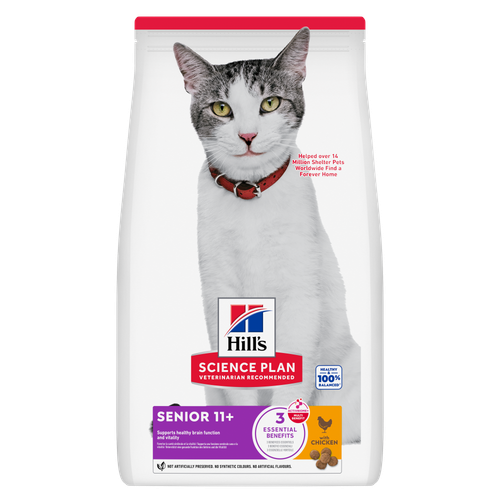
Hill's Science Plan Senior Cat Food with Chicken is a complete pet food, specially formulated with ActivBiome+ Multi-Benefit Technology.
This food supports healthy aging during the golden years. Contains a special ingredient blend to help keep older cats agile, more alert & interactive.
Related articles
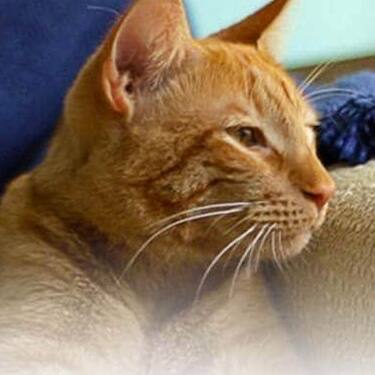
Find the right Hill
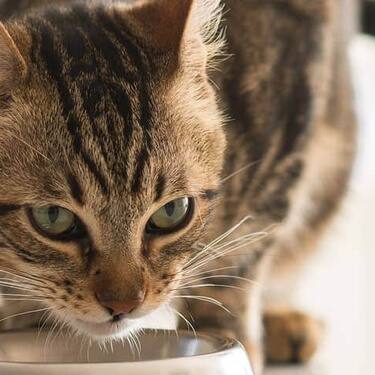
Discover what you can do to spot and support a sensitive cat stomach. See what routines and food you can implement to help your cat be happy and healthy.
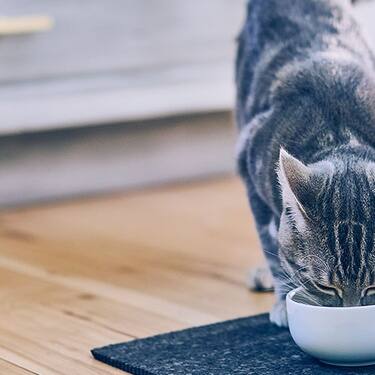
Good nutrition is about the right balance of nutrients. Learn more about health issues when feeding a cat food that has an improper nutritional balance from your friends at Hills Pet Nutrition.
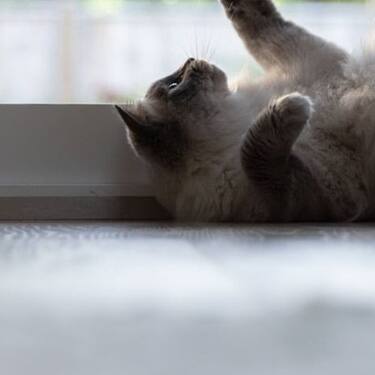
Feeding time can be a wonderful bonding opportunity for you and your cat. Find out how to make the most of it and create a healthy habit with HIll's Pet UK.

Put your cat on a diet without them knowing
Our low calorie formula helps you control your cat's weight. It's packed with high-quality protein for building lean muscles, and made with purposeful ingredients for a flavourful, nutritious meal. Clinically proven antioxidants, Vitamin C+E, help promote a healthy immune system.
Put your cat on a diet without them knowing
Our low calorie formula helps you control your cat's weight. It's packed with high-quality protein for building lean muscles, and made with purposeful ingredients for a flavourful, nutritious meal. Clinically proven antioxidants, Vitamin C+E, help promote a healthy immune system.

